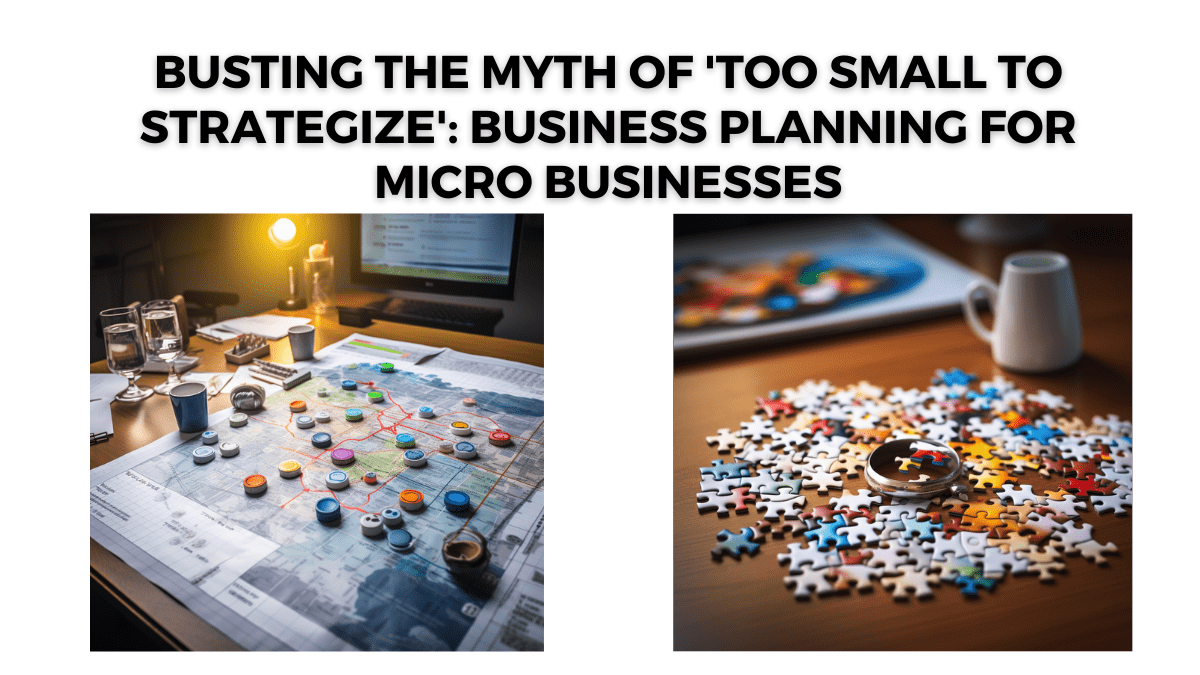Greetings, fellow entrepreneurs! It’s your resident finance MBA and comedy writer back at it again, ready to bring a spoonful of humor to help the business medicine go down. Today, we’re going to debunk a myth that has stubbornly persisted in the business world: the belief that small, micro-businesses are “too small to strategize”. Spoiler alert: they’re not. In fact, I’m here to tell you that effective strategy is what can turn your startup from a punchline into the star of the show.
Remember your first session with us is 100% Risk Free – Book it now! You have nothing to lose
No Business Too Small for Strategy
Just because you can count your team members on one hand doesn’t mean you don’t need a solid strategy. Remember, even the world’s most successful stand-up comedians didn’t just wander onto the stage and hope for the best. They planned, they prepared, they strategized.
When it comes to micro-businesses, the same rule applies. Your business strategy is your script. It outlines your goals (the plot), how you plan to achieve them (the script), and what you’ll do if things go awry (the improv). It’s your guiding star, your roadmap, your comedy routine for the business world. Without it, you may find yourself lost in the wilderness, or worse, bombing on the metaphorical stage.
Strategy: Your Set List for Success
Creating a business strategy needn’t be as scary as facing a tough crowd. It’s about understanding your business, your audience (i.e., your market), and how you can deliver what they need. Start with your vision – what you want your business to achieve in the long run. This is the headline act, the main event, the grand finale of your performance.
Next, consider your resources. In a small business, these might be limited, but remember, many a great comedy sketch has been born from just a single prop. It’s not about how much you have; it’s about how creatively you can use it.
Lastly, think about your action plan. This is the step-by-step guide that will help you achieve your vision. It’s your set list, the carefully planned routine that will guide you through your performance, help you win over your audience, and leave them demanding an encore.
Embracing the Improv
In business, as in comedy, things don’t always go to plan. Your strategy should be flexible, allowing you to adapt and pivot when necessary. It’s the improv section of your routine, where quick thinking and creativity can save the day. As a small business, you might not have the resources of larger competitors, but you have agility, the ability to change your act according to the audience’s reactions.
In other words, don’t be afraid to stray from the script if the situation calls for it. After all, some of the best comedic moments come from improvisation.
The Final Bow
So there you have it, folks. Size doesn’t matter when it comes to strategy. Whether you’re a one-person show or have a few trusty sidekicks, a well-thought-out strategy can be the difference between a standing ovation and a silent room. It’s your ticket to a successful performance, ensuring that even when things go off-script, you’re ready to steal the show. So, micro businesses of the world, it’s time to step into the spotlight and start strategizing, because every great performance starts with a great plan.
| Questions to Simplify Your Business Strategy |
|---|
| 1. Are there areas where I’m spending more time than necessary, such as minor details or tasks that don’t contribute much to my overall goals? |
| 2. Am I overcomplicating my business model? Could my product or service be simplified? |
| 3. Do I find myself constantly putting out fires rather than focusing on growth? |
| 4. Is my marketing strategy convoluted with too many channels or messages? Could I streamline it to make it more effective? |
| 5. Are there repetitive tasks in my daily operations that could be automated or outsourced? |
| 6. Have I set too many goals at once? Could I focus on fewer, more impactful objectives? |
| 7. Am I trying to serve too broad of a market? Could I narrow my target audience to better meet specific needs? |
| 8. Am I holding onto business practices because “that’s how it’s always been done”? Could there be a simpler, modern approach? |
| 9. Do I frequently feel overwhelmed by administrative tasks that could be simplified with the right tools or software? |
| 10. Am I trying to compete with larger businesses on all fronts, rather than focusing on my unique strengths and niche? |

Leave a Reply